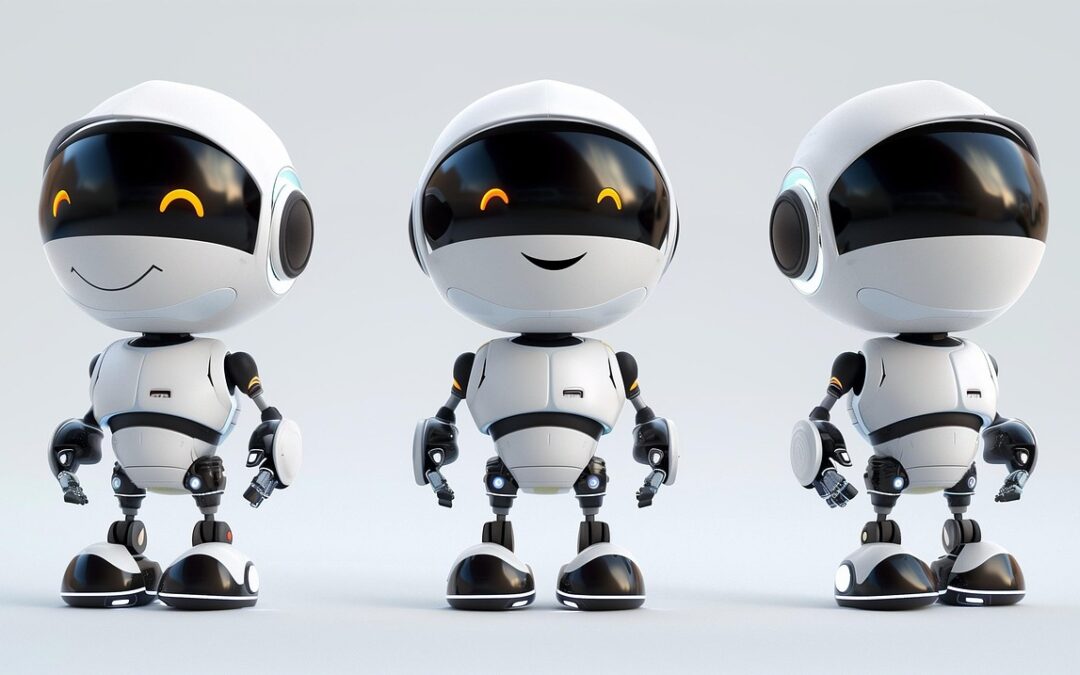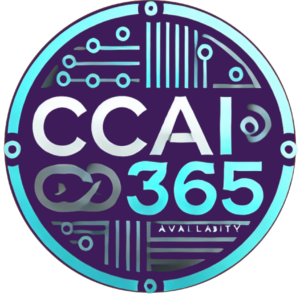
AI Chatbots vs AI Agents: Which One Will Revolutionize Your Business in 2025?
Introduction to AI Chatbots vs AI Agents
In today’s fast-paced, tech-driven world, businesses are constantly seeking new ways to innovate, enhance customer service, and streamline operations. Artificial Intelligence (AI) is at the forefront of this transformation, with two primary tools emerging as game-changers: AI chatbots and AI agents. While both are rooted in AI, their functionalities, applications, and long-term benefits can differ significantly. As we step into 2025, understanding the debate of AI chatbots vs AI agents is more crucial than ever for business owners who want to stay ahead of the curve.
This article dives deep into the key differences between AI chatbots and AI agents, explores the incredible AI chatbot benefits, highlights how AI agents offer smart, context-aware solutions, and provides real-world comparisons to help you make the best choice for your business. Whether you’re looking to optimize customer interactions, automate backend processes, or plan for scalable growth, this guide is your go-to resource for navigating the future of intelligent automation. Let’s explore which one will revolutionize your business in 2025!
Understanding the Core Difference: AI Chatbots vs AI Agents
The first step in understanding the AI chatbots vs AI agents conversation is identifying their foundational differences. AI chatbots are primarily designed to simulate human conversation using predefined scripts or natural language processing (NLP). They respond to user queries, often in a linear, task-specific way, making them highly effective for handling customer service FAQs, appointment bookings, and basic troubleshooting.
AI agents, on the other hand, are much more advanced. Think of them as intelligent digital workers capable of not only holding conversations but also understanding context, making decisions, and taking actions based on dynamic environments. While chatbots may ask, “How can I help you today?”, AI agents can proactively detect issues, retrieve relevant data from multiple sources, and deliver comprehensive solutions without human input.
The primary distinction comes down to intelligence and autonomy. AI chatbots are reactive, while AI agents are proactive. Where a chatbot might follow a pre-defined decision tree, an AI agent can adapt its responses based on real-time input and even learn from past interactions to improve future performance.
This distinction sets the stage for how each can impact your business differently. AI chatbots are excellent for consistent, high-volume tasks that require immediate responses. AI agents, however, can drive efficiency across departments, analyze trends, predict customer needs, and even automate complex workflows.
As businesses scale and the demand for personalized customer experiences rises, knowing the difference between AI chatbots vs AI agents is key to determining which solution will bring long-term value.
Exploring AI Chatbot Benefits for Streamlining Customer Support
When it comes to delivering exceptional customer service without blowing your budget, AI chatbots are the champions. One of the top AI chatbot benefits is their ability to offer 24/7 customer support. Gone are the days of keeping support teams available around the clock. With AI chatbots, businesses can ensure instant responses to customer inquiries at any time of day or night.
Another major benefit is consistency. AI chatbots follow predefined protocols, ensuring every customer receives the same quality of service regardless of who or when they connect. This is especially crucial for businesses handling hundreds or thousands of customer interactions daily. Consistent, timely responses enhance customer satisfaction, reduce wait times, and improve overall brand perception.
AI chatbot benefits also include reduced operational costs. By automating routine support tasks like answering FAQs, processing simple transactions, and guiding users through websites, businesses can reallocate human resources to higher-value tasks that require empathy, creativity, and strategic thinking.
Moreover, AI chatbots offer valuable insights through analytics. They can track customer queries, monitor sentiment, and identify trends. These data points help businesses improve their services, tailor marketing efforts, and anticipate customer needs before they escalate.
Let’s not forget scalability. During peak seasons or marketing campaigns, support requests can spike. AI chatbots can handle unlimited conversations simultaneously without compromising quality, helping businesses scale smoothly without hiring additional staff.
For business owners looking to enhance customer experience, improve efficiency, and maintain a competitive edge, the AI chatbot benefits are impossible to ignore. While they may not replace human interaction entirely, AI chatbots provide a powerful tool for building faster, smarter, and more reliable customer service infrastructures.
How AI Agents Deliver Smarter, Context-Aware Business Solutions
If AI chatbots are the dependable assistants, AI agents are the expert strategists. What makes AI agents particularly exciting for business owners is their ability to go beyond simple conversations and into intelligent decision-making territory. These digital agents use machine learning, natural language understanding, and real-time data processing to perform complex tasks with minimal supervision.
AI agents are capable of understanding context. Unlike traditional chatbots that rely heavily on user input to continue a conversation, AI agents can analyze a situation, access historical data, and make context-based decisions. For instance, an AI agent can detect that a customer has previously complained about a delayed shipment and proactively offer updates, compensation, or escalate the issue to a human agent.
AI agents also shine in multi-channel environments. Whether your customer is reaching out via email, social media, live chat, or voice, an AI agent can integrate these data streams to provide seamless, unified support. This leads to higher customer satisfaction, as users don’t have to repeat themselves across platforms.
Another exciting advantage is automation of internal operations. AI agents can perform backend tasks like processing refunds, updating CRM records, managing inventory, or generating reports. Their intelligence allows them to follow up, ask clarifying questions, and adapt to changes in workflows without human intervention.
From a business strategy perspective, AI agents can analyze customer behavior, detect patterns, and even predict future actions. They support proactive engagement, personalized marketing, and optimized sales funnels. All of this adds up to smarter business operations and increased revenue potential.
In the AI chatbots vs AI agents comparison, AI agents offer a higher level of sophistication and strategic value. For companies seeking not just customer interaction tools, but business transformation solutions, AI agents are leading the charge into 2025 and beyond.
AI Chatbots vs AI Agents in Real-World Business Scenarios
To truly appreciate the power of AI chatbots vs AI agents, let’s explore how each performs in actual business settings. Imagine a retail company handling thousands of customer queries daily. Deploying an AI chatbot allows the business to instantly respond to common questions like “Where’s my order?” or “What is your return policy?”. These chatbots reduce call center volume, speed up support, and increase customer satisfaction.
Now, consider a logistics firm managing complex supply chains. An AI agent integrated into the system can monitor shipments in real-time, predict delivery delays using weather and traffic data, and reroute drivers accordingly. It doesn’t just answer questions—it solves problems before they arise.
In healthcare, AI chatbots can assist with appointment bookings and FAQs about symptoms or insurance, streamlining patient intake. Meanwhile, AI agents can analyze patient data, suggest personalized treatment plans, and alert doctors about potential complications, vastly improving outcomes.
In the banking sector, AI chatbots handle balance inquiries or credit card issues. AI agents, on the other hand, detect fraudulent transactions, analyze financial trends, and offer proactive financial advice.
The key takeaway in AI chatbots vs AI agents is that chatbots are best for structured, high-volume interactions, while AI agents excel in dynamic, unpredictable, and high-stakes scenarios. By analyzing these use cases, business owners can clearly see where each tool fits and how they can be integrated for maximum impact.
Choosing the Right Fit for 2025: Maximize AI Chatbot Benefits or Embrace AI Agents?
As 2025 approaches, the question isn’t whether to adopt AI—it’s about choosing the right type. AI chatbots vs AI agents is not a one-size-fits-all decision. Business owners need to evaluate their specific goals, customer needs, and operational complexity.
If your focus is on improving response times, handling repetitive tasks, and providing around-the-clock support, then capitalizing on AI chatbot benefits makes perfect sense. Chatbots are easy to implement, cost-effective, and offer a quick return on investment.
However, if your business requires advanced data processing, contextual understanding, and intelligent decision-making, AI agents offer the next-level solution. They bring scalability, personalization, and strategic insights that can completely transform how your business operates.
Many businesses will find that a hybrid approach works best. AI chatbots handle frontline inquiries, while AI agents tackle backend processes and complex interactions. Together, they form a powerful ecosystem that enhances every touchpoint of the customer journey.
No matter which direction you choose, integrating AI into your business is no longer optional—it’s essential. And the good news? You don’t have to make this decision alone.
Conclusion
The debate of AI chatbots vs AI agents is more than a tech trend—it’s a business revolution in motion. As we enter 2025, the potential for AI to transform industries is unprecedented. AI chatbots bring speed, scalability, and cost-efficiency. AI agents deliver intelligence, autonomy, and strategic power. Choosing the right path depends on your business needs, goals, and vision for the future.
Are you ready to revolutionize your business with the right AI solution? Contact CCAi365 at 252-668-1640 today to revolutionize your business! Whether it’s tapping into the unmatched AI chatbot benefits or unleashing the advanced power of AI agents, CCAi365 is here to help you lead the way.
Let 2025 be the year your business harnesses the full force of AI.








